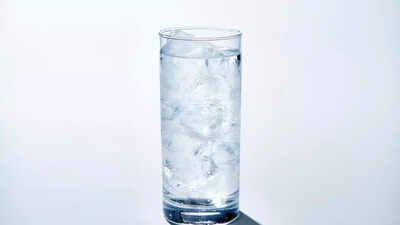The question of whether drinking cold water is detrimental to your health is a topic of ongoing debate. While some believe it can negatively impact digestion by causing the stomach to contract, scientific evidence to support this claim remains limited.

Both cold water and room-temperature water are effective for hydration. Many find cold water particularly refreshing after physical activity, as it aids in cooling the body and may provide a minor boost to metabolism. While some individuals with sensitive teeth or digestive systems might experience discomfort, the majority can consume cold water without any adverse effects. Ultimately, the preferred water temperature is a matter of personal choice. The most important factor is maintaining adequate hydration, as water, regardless of its temperature, is crucial for both mental and physical well-being.
Consuming cold water can, in some cases, lead to unexpected bodily responses.
A 1978 Healthline study involving 15 participants revealed that cold water consumption led to an increase in the thickness of nasal mucus, potentially hindering its passage through the respiratory tract. In contrast, hot water and chicken soup were found to have the opposite effect, promoting easier breathing.
For individuals with specific health conditions, cold water may exacerbate existing symptoms. Research indicates that drinking cold water can trigger migraines in susceptible individuals (as shown in a 2001 study) and worsen symptoms of achalasia, a condition that affects the passage of food through the esophagus (according to a 2012 study).
In Traditional Chinese Medicine, it's believed that drinking cold water with hot food can disrupt the body's balance. This is why warm water or tea is often served with meals. Similar beliefs exist in other cultures. However, further research is necessary to validate these claims.
Reports indicate that drinking cold water can offer several benefits, including:
Drinking cold water may contribute to weight loss, albeit to a limited extent. Potential benefits include:
Newer articles
Older articles
 Smith Eyes Grenada Test Return After Injury Recovery
Smith Eyes Grenada Test Return After Injury Recovery
 Google Maps Boosts Navigation Precision with Fused Orientation Provider Update
Google Maps Boosts Navigation Precision with Fused Orientation Provider Update
 Earth Sciences Minister Rijiju Expresses Frustration Over Atos Supercomputer Delay, Jeopardizing Weather Forecast Upgrades
Earth Sciences Minister Rijiju Expresses Frustration Over Atos Supercomputer Delay, Jeopardizing Weather Forecast Upgrades
 Washington Freedom Snatch Last-Ball Win Over Knight Riders in MLC Thriller; Playoff Hopes Soar
Washington Freedom Snatch Last-Ball Win Over Knight Riders in MLC Thriller; Playoff Hopes Soar
 East Africa Rift: Mantle Upwelling Drives Birth of New Ocean, Study Finds
East Africa Rift: Mantle Upwelling Drives Birth of New Ocean, Study Finds
 Prasidh Krishna Vows to Sharpen Bowling After Costly Leeds Performance
Prasidh Krishna Vows to Sharpen Bowling After Costly Leeds Performance
 Colon Cancer: Don't Ignore These 5 Subtle Warning Signs
Colon Cancer: Don't Ignore These 5 Subtle Warning Signs
 Gavaskar Urges India to Replace Thakur with Yadav for Second Test Against England
Gavaskar Urges India to Replace Thakur with Yadav for Second Test Against England
 Rishabh Pant's Unconventional Batting Style Is Revolutionizing Cricket, Says Greg Chappell
Rishabh Pant's Unconventional Batting Style Is Revolutionizing Cricket, Says Greg Chappell
 Vitamin B12 Deficiency: Cardiologist Explains Symptoms, Sources, and Why You're Always Tired
Vitamin B12 Deficiency: Cardiologist Explains Symptoms, Sources, and Why You're Always Tired